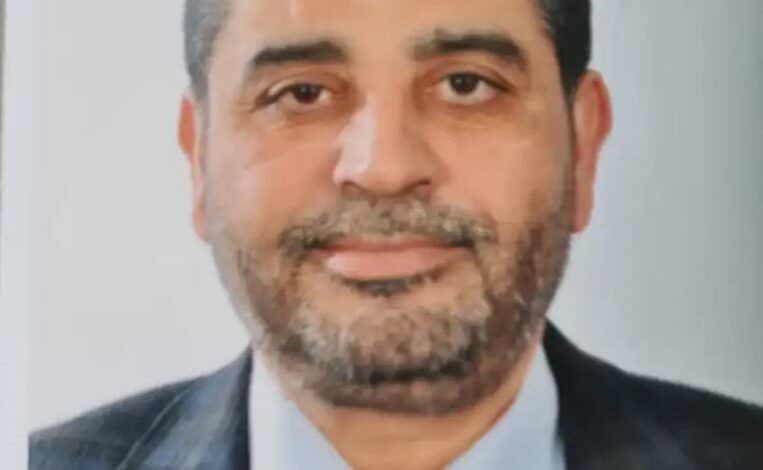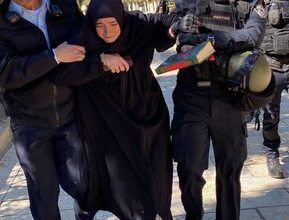‘Release or death’: Palestinian in Israeli jail stops medication
Amin Shweiki, 61, refuses to take insulin injections in protest against months-long detention without trial or charge.

Beit Hanina, Occupied East Jerusalem – For the past week, Palestinian prisoner Amin Shweiki, 61, has refused to take his insulin injections in protest against his months-long imprisonment without trial or formal charges.
Israeli forces arrested a diabetic Amin on May 17 from his home under the administrative detention law, as part of a campaign of arrests (PDF) in the city following protests against the ethnic cleansing of Palestinians in Sheikh Jarrah neighbourhood and the bombardment of the besieged Gaza Strip.
Amin, a UK graduate in civil engineering, is one of the 520 Palestinian prisoners held under administrative detention, a policy that allows the Israeli police and military to imprison Palestinians indefinitely, on “secret information”, without presenting them with formal charges or allowing them to stand trial – laws that originate from the British occupation of Palestine.
A day before his expected release on September 16, an Israeli court extended Amin’s administrative detention order for an additional four months, prompting him to declare a strike in the country’s southern Naqab prison where he is being held.
“Either I am released, or I die here,” he told his wife and lawyer.
The father of seven usually takes three shots of insulin every day, as well as heart, cholesterol and kidney medication, according to his wife. He is a tradesman in glass and owns a well-known glass shop near the Old City of Jerusalem.
“I’m worried about him,” his 59-year-old wife, Hanaa Shweiki, told Al Jazeera from the garden of their home in Beit Hanina.
“He feels exhausted and says he can no longer do any real exercise as he always does,” she said, adding that he is reporting experiencing frequent urination, intense thirst, and bitterness in the mouth.
According to the Palestinian Prisoners’ Society (PPS), Amin is also one of the five prisoners with various illnesses – including chronic ones – who are resisting their administrative detention by refusing to take their medication across different prisons. The other four, who hail from the occupied West Bank, are Ayed Dudin, Yousif Qazzaz, Ahmad Abu Sundus, and Yasser Budrusawi.
Over the past month, the issue of Palestinian prisoners has taken centre stage after six prisoners managed to break out of Israel’s high-security Gilboa prison through a tunnel in the country’s north at dawn on September 6.
The jailbreak was widely hailed as a victory by Palestinians, most of whom view detainees in Israeli prisons – numbering 4,650 Palestinians, including 200 children – as political prisoners who are in detention because of the Israeli military occupation or their resistance to it.
Since then, prisons have witnessed heightened tensions due to claims of abuse against the six escapees who were later rearrested, as well as Israeli collective punishment policies against Palestinian prisoners, who have continuously threatened to go on a mass hunger strike.




